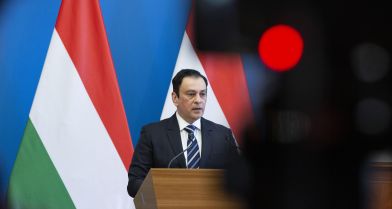
Alsózsolca chosen by a leading insulation producer - VIDEO REPORT
2018. 03. 20.

The Belgian-Turkish Ravaber establishes its regional production unit in North-Eastern Hungary. A significant global producer of rock-wool based insulations for building and other purposes, Ravaber invests EUR 20 million into establishing a complex production unit in Alsózsolca creating 90 new jobs. The new plant is going to increase the capacity of the corporation by one-third.
Ravaber Building Material Industry was created when Belgian Ravago and the Turkish Besler Tekstil joined their forces in 2013, leaving Ravago Group and Besler Tekstil with a 50% share each. The corporation is the biggest rock-wool producer of Turkey with an annual manufacturing capacity of 110,000 tons. Its registered office is in Kayseri, the Turkish twin-town of Miskolc.
The primary aim of Ravaber is to produce the best quality rock-wool building on the experiences of Besler Tekstil. Insulation products of Ravaber are used, among others, for heat and sound insulation, and to prevent the spread of fire and the diffusion of vapour. Rock-wool products are mainly used in the building industry but are in use in other industries as well.
Ravaber plans to implement an investment for producing rock-wool of an annual capacity of 36,000 tons in Hungary. This would significantly increase the capacity of the whole corporation. For the production of the insulation material, Ravaber is going to use a high volume of basalt, diabase and coke partly to be purchased from a Hungarian source, the Egerbakta mine. For the production of resin necessary for manufacturing, the Hungarian plant is going to include a small chemical division as well. Insulation materials produced in the plant are going to be sold in the Central and Eastern European markets.
Worth EUR 20 million, this investment is going to create 90 direct jobs in Alsózsolca, but this number will be higher considering the indirect implications of the extraction of the basic material in Hungary. This is especially important for the further development of the North-Eastern Hungary region.



